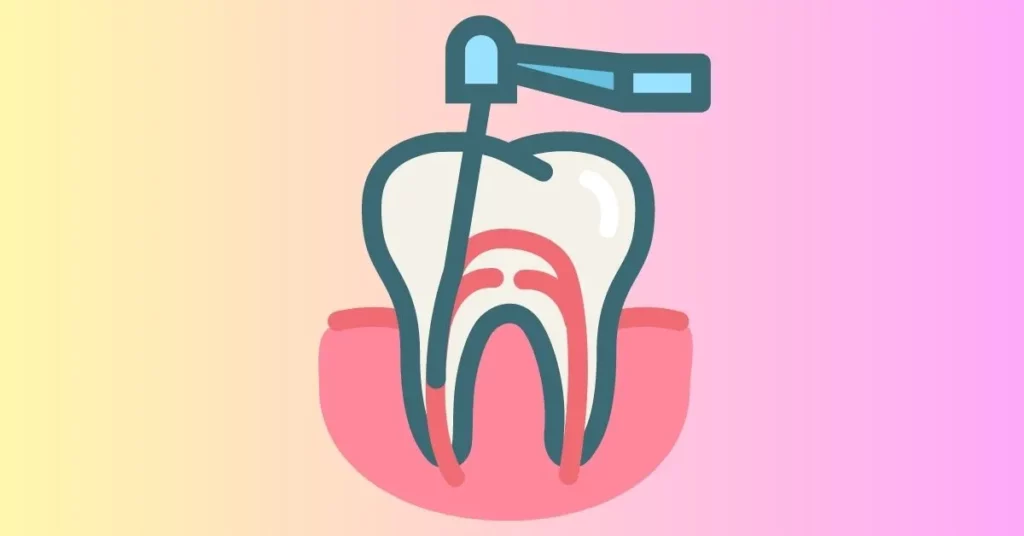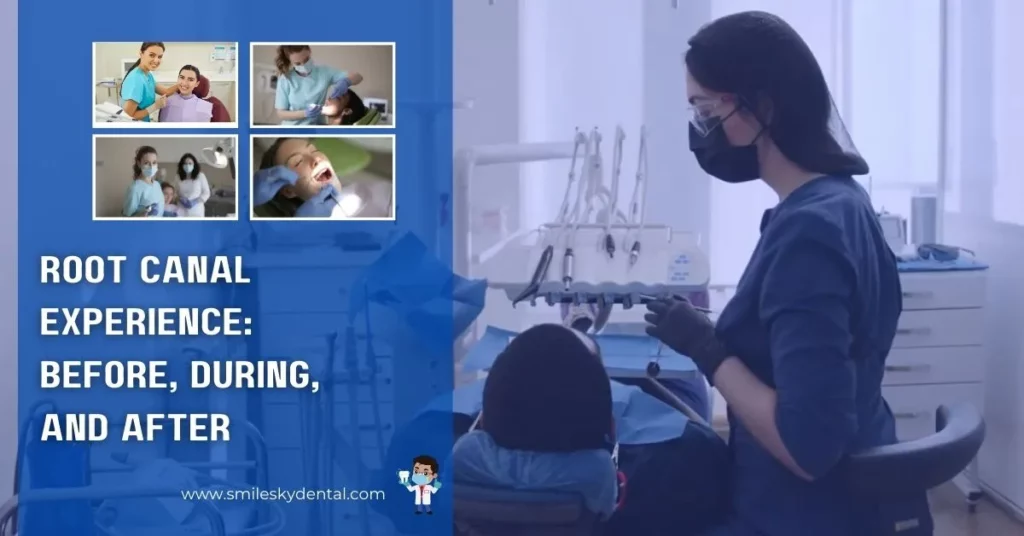For many people, a root canal experience can be intimidating. But, having a clearer understanding of what to expect before, during, and after the treatment can help reduce anxiety.
In this article, we will discuss several factors of having a root canal while addressing often-asked questions and concerns.
Before a Root Canal
Importance of a proper diagnosis: To determine whether a root canal is required and to determine the severity of the dental problem, your dentist will do a complete examination that includes X-rays.
Understanding the procedure
The root canal technique, its goal, and what to anticipate throughout the procedure will all be explained by your dentist.
Preparing for the appointment
It is essential to abide by any pre-operative advice your dentist provides, such as refraining from eating or drinking before the surgery, taking any recommended medications, and making travel arrangements as necessary.
During a Root Canal
Local anesthesia
Most root canals are performed under local anesthesia, ensuring a pain-free experience during the procedure.
Numbing techniques
Dentists use effective numbing techniques to ensure your comfort throughout the root canal. In rare cases, additional measures can be taken to address any discomfort or anxiety.
Procedure steps

The infected pulp will be carefully removed by the dentist. The root canal system will be cleaned and sealed with a filling substance. In some circumstances, a dental crown could be advised to regain the tooth’s strength and aesthetic appeal.
After a Root Canal
Post-treatment sensations
After a root canal, some sensitivity and discomfort are normal. To address any discomfort, your dentist may offer over-the-counter painkillers or write a prescription for painkillers.
Recovery timeline
Although recovery times can vary from person to person, most people are able to return to their normal routines immediately following surgery.
Follow-up care
Following a root canal, your dentist will give you advice on how to take care of your tooth, including how to maintain good dental hygiene and schedule any required follow-up appointments.
Pros and Cons of Root Canal Treatment
Here are the pros and cons of root canal treatment.
Pros
A root canal procedure can save a tooth that is infected, relieve discomfort, and return to normal biting and chewing activities. It can also preserve the tooth’s natural appearance.
Cons
The requirement for many dental appointments, the expense of the operation, and the risk of post-treatment discomfort are some cons.
FAQ
Q: What is the worst part of a root canal?
The worst part of a root canal for most patients is the anticipation of the procedure and the fear of potential pain. However, with modern techniques and anesthesia, the actual procedure is generally not as uncomfortable as perceived.
Q: Can a root canal be done without anesthesia or numbing?
Root canals are typically performed under local anesthesia, ensuring a pain-free experience during the procedure. However, in rare cases where patients have certain medical conditions or allergies to anesthesia, alternative options can be explored, such as sedation dentistry or specialized numbing techniques.
Q: Can a root canal be pain-free?
Yes, with the use of local anesthesia and effective numbing techniques, most patients experience minimal to no pain during a root canal procedure. Dentists prioritize patient comfort and employ various measures to ensure a pain-free treatment.
Q: Can a root canal be done at 16 years old?
If a tooth needs to be saved due to severe decay, infection, or trauma, a root canal can be carried out on a 16-year-old. The dentist will assess the particular situation and choose the best course of action.
Q: How bad does a root canal hurt on a scale of 1-10?
Each person has a different threshold for pain, but in general, the discomfort felt during a root canal operation is usually minor and bearable. On a scale from 1 to 10, most patients report experiencing discomfort at a level between 1 and 3.
Q: Is it normal to have a sore jaw after a root canal?
As a result of the way the mouth was positioned during the process, it is not uncommon to feel some soreness or tightness in the jaw after a root canal. With the right amount of rest and pain medication, this discomfort should go away in a few days.
Q: Can you experience swelling after a root canal?
While swelling following a root canal is uncommon, it can happen occasionally, especially if an infection was present before the treatment. It is crucial to get in touch with your dentist for additional assessment if you experience considerable swelling or other alarming symptoms.
Q: Do you get pain medication after a root canal?
Your dentist may suggest painkillers to relieve any discomfort experienced following treatment, depending on the specific circumstances and degree of discomfort. The use of over-the-counter painkillers can also be beneficial.
Q: How long can you wait to get a root canal?
Whenever a dental practitioner determines that a root canal is necessary, it is normally advised to have one done as quickly as feasible. Delaying care might result in further issues like heightened discomfort, an infection, or even the eventual loss of the damaged tooth.
Conclusion
Knowing how a root canal works and what to anticipate before, during, and after the treatment can help reduce anxiety and guarantee a great experience. You can successfully recover from a root canal and keep a healthy smile by adhering to your dentist’s recommendations, managing any discomfort with prescribed painkillers, and practicing proper dental hygiene.
Root canal therapy or any other dental care is available from Smile Sky Family Dental, who will treat you with the utmost care. Our devoted team is committed to providing thorough and caring dental care, assuring your comfort and well-being at all times.


